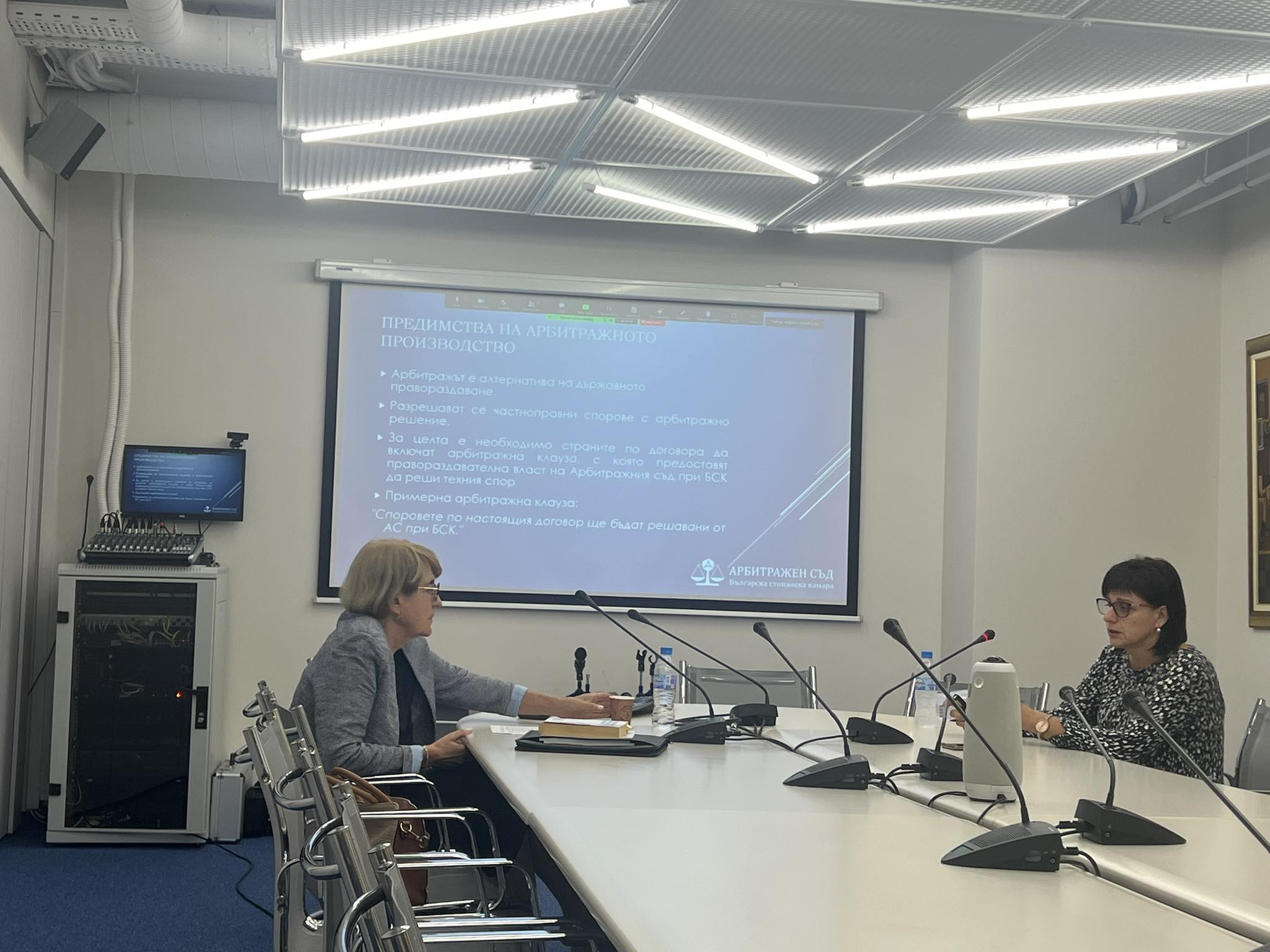More than 90 representatives of law firms, business managers and law students participated in a hybrid training on "Possibilities for resolving commercial disputes through arbitration", organized by the Arbitration Court of the Bulgarian Industrial Association.
The purpose of the training was to reveal the advantages of arbitration and mediation, and to promote them among interested parties - both lawyers and non-lawyers (traders, management staff of commercial companies, sales representatives, distributors, etc.)
The lecturers - Prof. Dr. Tanya Yosifova (Chair of the Court of Arbitration at BIA) and Assoc. Prof. Margarita Zlatareva (arbitrator at the AC at BSK) introduced the training participants to the peculiarities of arbitration proceedings and mediation as alternative out-of-court methods for resolving commercial disputes.
While state court requires lengthy, time-consuming procedures, arbitration is quick and efficient. In state court, rights must be exercised within specific time limits or they are lost, and costs and fees can be significant. On the other hand, arbitration offers flexible procedures and is more economical.
The arbitration decision can be enforced both in Bulgaria and abroad (pursuant to the New York Convention, to which the Republic of Bulgaria is a party).
The parties select arbitrators, and the case is usually concluded in 6 to 12 months with a final arbitral award that has the same force as a state court decision.
At any stage of the dispute, the parties can reach an agreement through a mediation procedure, which can take place entirely online through an e-mediation platform.
In order for a dispute to be referred to an arbitration court, it is necessary before the dispute arises that the parties to it have an arbitration clause in their contract. If the parties have neglected to include an arbitration clause in their contract, and there is a dispute in connection with its implementation, they can sign an additional agreement with the following sample text: "All disputes arising in connection with the implementation of the contract between the parties concluded on (date) between (the parties are described), will be decided by the Arbitration Court at the Bulgarian Industrial Association."
Arbitration proceedings are single-instance, but subject to judicial review by the Supreme Court of Cassation. Out of the hundreds of arbitration decisions of the AC at BIA so far (more than 20 years now), only a single decision has been overturned by the Supreme Court, which is an indicator of the quality of work of the AC at BIA. The composition of the Arbitration Board includes some of the most prominent scientists, former constitutional judges, judges of the Supreme Court of Cassation, distinguished lawyers and experts.
The Arbitration Court at the BIA is an independent judicial institution that hears and resolves civil and commercial disputes within the jurisdiction allowed by the Code of Criminal Procedure. Outside the competence of the arbitration court are the disputes: for real rights or possession of real estate, for alimony, labor disputes in which one party is a consumer.






